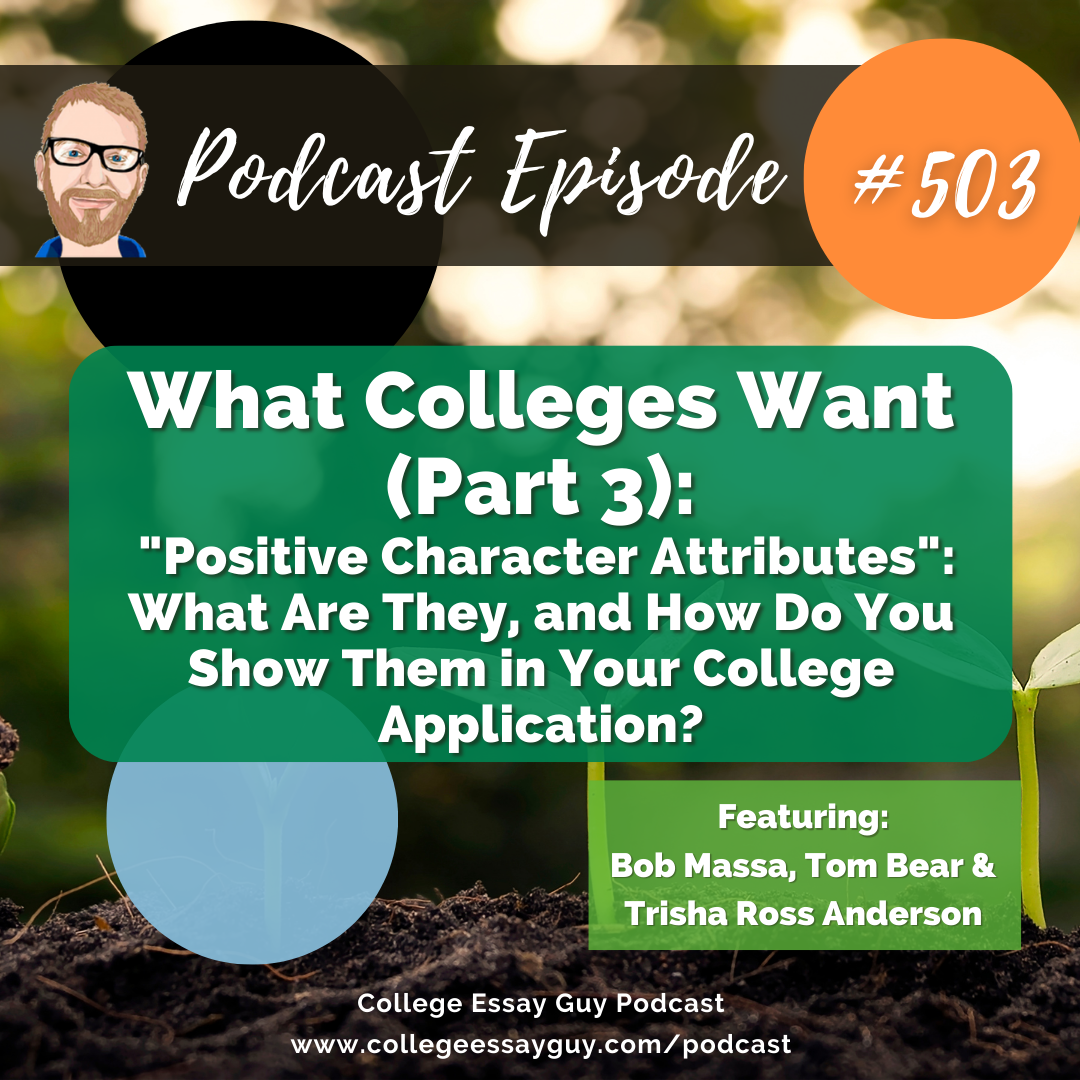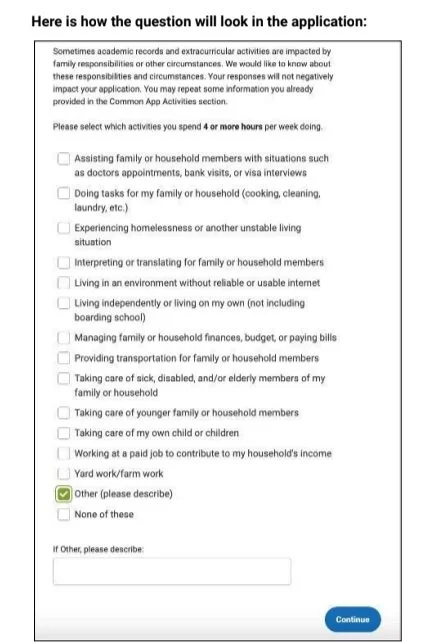SHOW NOTES
In today’s two-part episode, we’re delving into one of the potentially more confusing aspects of what colleges want — “positive character attributes” — which 65.8% of colleges give considerable or moderate importance.
In part 1, I’m joined by Tom Bear (VP for Enrollment at Rose-Hulman Institute of Technology) and Bob Massa (former chief admissions/enrollment officer at Johns Hopkins University, Dickinson College and Drew University) to discuss:
What are these positive character attributes?
Why are they important to colleges?
How do colleges decide which qualities to seek and how to evaluate for them?
How do students show these qualities in their application?
Part 2 is with Trisha Ross Anderson, from the Harvard Graduate School of Education’s Making Caring Common Project, and we get into:
How Making Caring Common helps colleges figure out what they are looking for
How some colleges are working to increase access and equity in admissions
Advice to parents as they navigate this process with their students
Tom Bear has been working in college enrollment since 1987 at a variety of institutions, including as VP for Enrollment at University of Evansville, Senior Director of Enrollment at Notre Dame and now as the VP for Enrollment at Rose-Hulman Institute of Technology. He joined the Character Collaborative in 2017, served as Board Chair and will chair NACAC’s Character Focus Initiative.
Bob Massa got his Doctorate in Higher Education from Columbia, served as the chief admissions/enrollment officer at Johns Hopkins University, Dickinson College and Drew University and Co- founded the Character Collaborative in 2016. Although he has retired from full-time work after 45 years of campus-based work, he is an adjunct professor at the University of Southern California’s online masters program in enrollment management.
Trisha Ross Anderson has served on research teams at the Harvard Graduate School of Education for the past 13 years. She’s worked with the Making Caring Common (MCC) Project to help write reports including one called Turning the Tide that focuses on reform of the college admission process. She leads MCC’s college admissions initiatives with Richard Weissbourd and currently serves on NACAC’s Character Focus Initiative Advisory Council.
Play-by-play
0:00 - Meet Tom Bear and Bob Massa (Part 1)
2:12 - What do colleges mean by “positive character attributes”?
3:55 - What are some examples of these “positive character attributes”?
4:58 - Why is it important for students, parents, and counselors to think about these qualities?
7:16 - How do colleges decide what qualities they’re looking for?
12:04 - How do colleges evaluate students for these qualities?
13:09 - Example of a rubric on extraordinary commitment to others
19:10 - Why don’t colleges share their rubrics for what they’re looking for?
21:18 - What can students do to better understand what a particular school is looking for?
24:08 - How do colleges evaluate “character” in an applicant?
29:58 - What is the high school profile and how is it used in a student’s evaluation?
31:20 - Why is it important to think about positive character attributes now?
35:56 - How can students demonstrate these qualities in their college applications?
40:00 - What can parents do to help their students in this process?
42:01 - Meet Trisha Ross Anderson (Part 2)
43:09 - What is the Making Caring Common (MCC) project?
44:37 - How is MCC working with colleges?
46:17 - Why is it difficult to create a rubric for these qualities?
48:16 - How is MCC helping colleges decide on what they are looking for?
52:45 - How is MCC helping colleges to increase equity and access in the college admissions process?
57:33 - Advice for parents on navigating this process with their students
1:01:31 - Closing thoughts
ResourceS
Ideas from Ethan for finding what you care about + finding content for your application:
MCC / CommonApp Question Screenshot:















